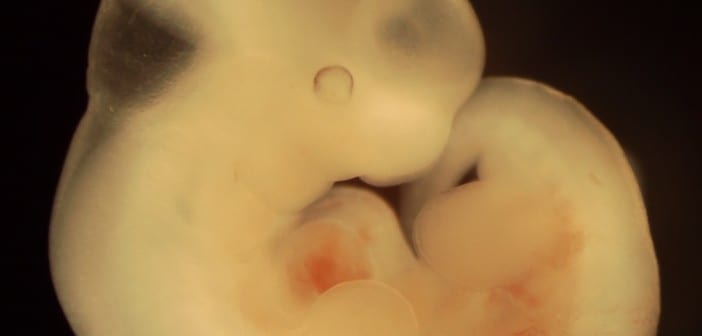Ethicists across the board are apprehensive about a new form of experimentation in which human DNA is manipulated in ways that could potentially result in part-animal, part-human embryos, or (further down the line), animals birthing fully human babies.
The experimental embryos are called chimeras. The ostensible purpose of the research is to create human organs for transplantation into sick patients, but ethical concerns over the mechanism for achieving this and the potential for abuse of human Life in the process are significant. In May, NPR reported:
One way would be to use chimera embryos to create better animal models to study how human diseases happen and how they progress.
Perhaps the boldest hope is to create farm animals that have human organs that could be transplanted into terminally ill patients.
But some scientists and bioethicists worry the creation of these interspecies embryos crosses the line. “You’re getting into unsettling ground that I think is damaging to our sense of humanity,” says Stuart Newman, a professor of cell biology and anatomy at the New York Medical College.
The National Institutes of Health, according to NPR, will not fund these experiments unless and until the ethical conundrum is resolved. However, there are private scientists who are carrying on the research alone. These researchers try to manipulate the genes of farm animals in their earliest days of gestation. For example, pig embryos are injected with a molecule that edits the pig’s DNA so that the animal may not grow a pancreas. Human pluripotent stem cells are then injected into these embryos before a scientist implants the embryos into a female pig. He removes the embryos 28 days later to observe whether the development of a human pancreas has begun.
There is much uncertainty related to this experimentation. For example, what would happen if two chimeras bred? What are the implications of creating a species that is only part human? What are the ethics of combining human DNA with an animal? What if the human DNA overtakes more than just the pancreas – entering, say, the brain? This uncertainty, though, and the glaring ethical dilemmas associated with continuing the research, have not been enough to give some scientists pause. In fact, they are willing to gamble on the outcome in hopes that the desired outcome would motivate the NIH to lift the moratorium on funding such experimentation.
The jury may still be out on the vast ethical implications of this scientific research, but one aspect is not at all vague: the scientist’s willingness to risk egregious violations of human dignity for the sake of a potential breakthrough. While the more thoughtful members of the scientific community have recognized the weighty nature and repercussions of this research, a handful of researchers forge ahead with apparent willingness to leave human dignity and research ethics trampled in their wake. The case bears alarming resemblance to that of scientists whose gratuitous use of aborted fetal cadavers and parts has yielded no significant medical breakthroughs, and along the way has carried immense cost in terms of devaluing human Life.
What are your thoughts on human-animal “chimeras”? Tell us in the comments below.


